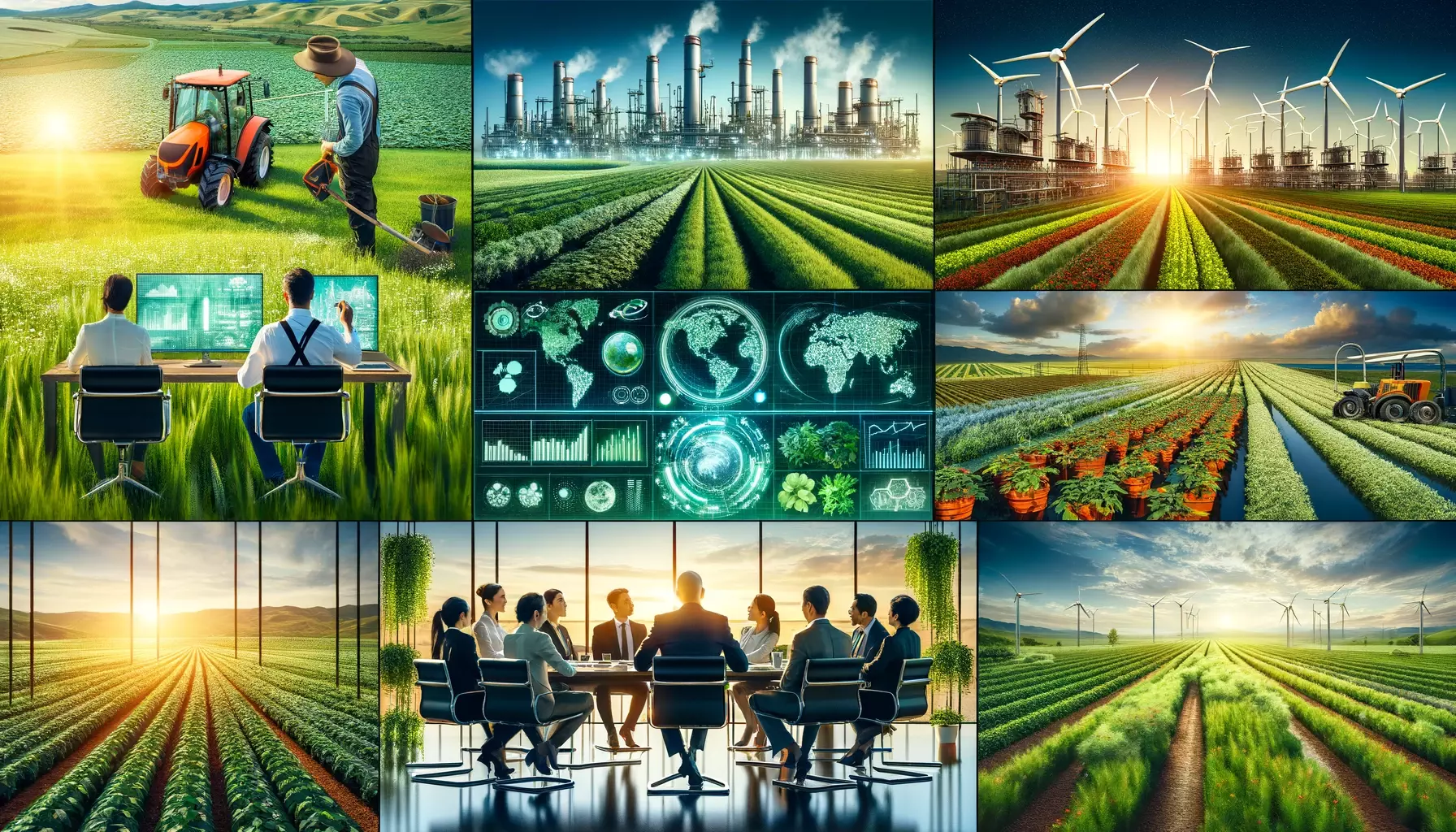Transforming the Food and Agriculture Industry
The next couple of years are poised to bring considerable changes to the agriculture value chain, offering unique opportunities to develop businesses that are not only resilient but also prioritize green growth.
Challenges and Progress in Food and Agriculture
In recent decades, the food and agriculture sector has grappled with the dual challenges of meeting global nutritional needs and mitigating the impacts of climate change. Rapid population growth in the late 20th century has intensified the demand for food, while the 21st century has seen climate change-related weather events further complicating food production. Despite these hurdles, significant advancements have been made in enhancing per capita caloric availability. However, environmental issues related to agriculture remain unresolved, with the sector contributing around 30% of global greenhouse gas emissions.
Carbon Reduction and Regenerative Agriculture
An emerging solution in agriculture is carbon removal through regenerative practices, such as cover crop cultivation. These practices have the potential to sequester a significant portion of the CO2 emissions that need to be captured annually by 2050. They also play a vital role in tackling other sustainability crises, including biodiversity loss and nutrient pollution. This shift is partly driven by public incentives pushing companies to innovate and rethink their business models.
Future-Proofing Food Systems
To sustainably meet the global demand for food, fuel, and fiber, a radical transformation in food systems is essential. Our survey of industry leaders, including executives from established companies, venture capital firms, and startups, sheds light on emerging business concepts that aim to address the sector’s sustainability challenges and promote a resilient, green future.
Key Trends Shaping 21st-Century Agriculture
Regulatory initiatives and private-sector commitments are playing a pivotal role in reshaping the food and agriculture sector. Policies like the European Commission’s Farm to Fork Strategy and the commitments made by corporations through the Science Based Targets initiative are driving change. Based on these developments, five significant shifts have been identified: enhancing land value, advancing the biorevolution, promoting sustainable diets, fostering ESG transparency, and reducing waste. These shifts, though challenging for existing agribusinesses, are seen as critical for future impact.
Innovative Business Concepts for Sustainable Agriculture
Despite challenges, there are significant opportunities for both new and established businesses in the agricultural sector. These include concepts like expanding land value beyond traditional crops, supporting regenerative agronomy, and assisting smallholder farmers. Moreover, innovations in manure management and biorefining are becoming increasingly important, as are developments in sustainable food options like plant-based proteins and lab-grown meats.
Waste Reduction and Climate Accountability
Strategies to reduce food waste are crucial, with innovative storage solutions and waste-to-energy techniques gaining traction. Additionally, enhancing transparency and accountability for climate risks is important for ensuring sustainable practices across the value chain.
A Call to Action for Today’s Agribusinesses
Agribusinesses must adapt to these changes by strengthening their core operations, exploring new opportunities close to their existing businesses, and considering broader partnerships. This adaptation is essential for meeting the evolving needs of farmers and consumers in a technology-focused world. The actions taken now will shape the future of food and agriculture, emphasizing the need for timely and effective responses to these emerging trends and challenges.
